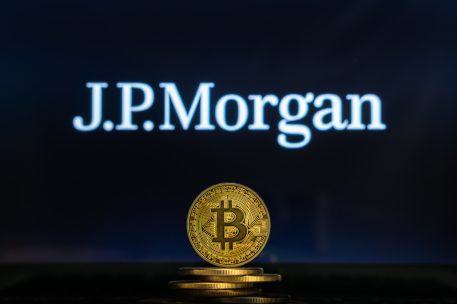JPMorgan Chase is reportedly deepening its involvement in the world of digital tokens.
Officials at the nation’s largest bank told the Wall Street Journal (WSJ) on Thursday (Oct. 30) that JPMorgan had tokenized a private equity fund on its blockchain platform for wealthy clients served by its private bank.
“For the alternative investment industry, it is only a matter of time before a blockchain-based solution is adopted.” Anton Pilhead of global alternative investment solutions for JPMorgan’s asset management arm, told the WSJ.
“It’s more about simplifying the alternatives ecosystem and making it, frankly, a little easier to access for most investors.”
For example, a tokenized fund allows all parties to share a real-time view of who owns what and who has delivered on their investment promises, the report says. This helps mitigate the surprises that accompany “capital calls,” that is, requests by private fund managers for investors to offer a portion of the capital they have committed.
According to the WSJ, the move comes ahead of JPMorgan’s broader rollout next year of its fund tokenization platform, Kinexys Fund Flow. This platform takes data from fund managers, distributors and administrators, creates smart contracts representing ownership of funds and enables the near-instant exchange of cash and assets on the blockchain.
Advertisement: Scroll to continue
According to the report, tokenization allows the bank to offer customers a digital representation of ownership of an asset held in a blockchain ledger.
As the WSJ noted, banks that have expressed distrust of cryptocurrencies have nevertheless advocated for the potential of blockchain technology. The recent passage of the Genius Act, which established a regulatory framework for stablecoins marked the start of a broader wave of tokenization.
Goldman Sachs And Bank of New York Mellon announced a partnership in July to launch digital tokens that grant ownership of money market funds managed by their asset management operations as well as investment firms like BlackRock and Fidelity.
This partnership, PYMNTS writes, is not simply about faster transactions, but rather “programmable liquidity and a treasury function that increasingly operates in real time.”
And this is happening against a backdrop of pro-crypto regulatory dynamics. — like the law of clarity — and the interest of the traditional financial sector and its largest clients.
“The banks are in the state they are in think about blockchains as a public infrastructure on which they must rely”, On-Chain Analysis Co-founder and CEO Jonathan Levin said in an interview with Karen Webster, CEO of PYMNTS, published April 7. “Without a federal framework, it is incredibly difficult for financial services companies and international businesses to truly feel comfortable. »
For all PYMNTS digital transformation coverage, subscribe daily Digital Transformation Newsletter.




